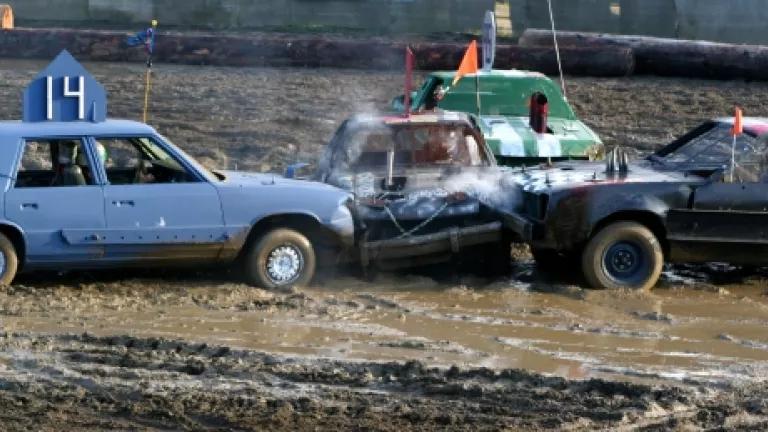
Here's the state-of-play with transportation law:
The Senate passed a bill, Moving Ahead for Progress in the 21st Century, MAP-21, by an overwhelming bipartisan vote of 74-22. This lobbed a nice easy proposal to the chamber on the other side of Capitol Hill, which has managed only fits and starts towards its own bill.
Last week was Easter recess, and NRDC colleagues and I have been getting the word out that the House needs to pass the balanced, bipartisan Senate bill.
This week, however, House Leadership once again surprised no one by taking a partisan tack with the transportation bill. It proposed extending current law by 90 days instead of passing the MAP-21 (which is now readily available for passage as a House bill, H.R. 14), and topped that by attaching an unrelated provision (what’s aptly termed a “rider”) – pushing approval of the controversial Keystone XL pipeline. As my colleague Susan Casey-Lefkowitz notes this bogs down a much-needed (if lackluster) jobs bill with a giveaway to the fossil fuel industry. Predictably, it attracted a veto threat right away from an Administration guarding its prerogative to make a decision regarding the pipeline.
And on top of this there will be votes on worsening amendments to slash regulation of coal ash and demolish requirements that projects be reviewed by the public based on environmental effects. This last amendment, offered by Congressman Reid Ribble of Wisconsin, mirrors almost exactly what was in H.R. 7, the worst transportation bill ever, and I’ve written about its contents here.
So let’s make sure the story is clear here: House GOP Leadership, who like North Korea seems woefully inept at launching anything serious, is proposing as its infrastructure agenda a mere extension of current law tied to construction of a new pipeline to be added to the hundreds of thousands of miles already in place along with measures eviscerating environmental protection.
istockphoto/davelogan
Instead of a demolition derby of outdated proposals that would drive up pollution and fossil fuel dependence, we need other infrastructure investments. The good news is that the nation is leading Congress on that score. Public transportation ridership was at 10.4 billion boardings last year, the second highest level since 1957. To help support this growth, we have hardwired the country with an additional 423 million miles of public transportation routes (e.g., bus, rail) since the turn of the millennium, more than 14 percent growth (for details see vehicle revenue miles table from APTA here). And a lot of these projects are innovative, as profiled in this report.
The progress with vehicle infrastructure in just the past few years is even more amazing. Miles-per-gallon for vehicles actually on the road is at 24.1, a big jump even if we just look back to 2008 when it was 20.8. The vehicle fleet takes a dozen years or so to turn over, so this is a really fast boost in average fuel-efficiency. Automakers, whether in Detroit or overseas, have improved their product lines to offer a host of new fuel-efficiency cars and trucks and they are selling like hotcakes as Automotive News reports. This is healthy for car company bottom-lines, and for our environment too as my colleague Roland Hwang writes here. Roland also notes that we can look forward to more of the same, given the Obama Administration’s remarkable leadership on fuel economy performance standards, which is slated to move the bar up to a 54.5 mpg average for new vehicles by 2025.
Americans are voting with their dollars and their mobility choices. The name of the game is fuel savings, which can be achieved if we have the right infrastructure in place. The Senate did its job, it’s time for the House to follow suit. House Members should vote NO on H.R. 4348 and any amendments to make it even worse. And Members should pressure Leadership to allow a vote on H.R. 14, so we can get a bill passed that takes us through 2013 with job-creating investments in roads and rail projects nationwide.
